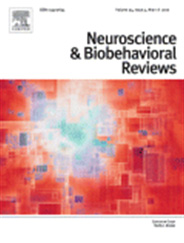Two Guest Editors will manage the peer-review process
for a special issue of a High-Impact, Peer-Reviewed
Neuroscience Journal
Two guest editors will manage the peer review process for the special issue that will capture the outcomes of Human Affectome Project. The guest editors will jointly author the introductory editorial in the special issue in Elsevier’s “Neuroscience & Biobehavioral Reviews”.
|
|
|
Howard Casey Cromwell, PhD -_Co-Director of the J.P. Scott Center for Neuroscience, Mind & Behavior at Bowling Green State University, Dr Cromwell is involved in elucidating the physiological mechanisms that underlie emotional states and motivated action. His team studies how these processes develop using sensitive behavioral assays for maternal attachment and early social interactions. The laboratory is involved in both neural and endocrine studies looking at how early hormone development guides motivation and how endocrine disruption perturbs specific behaviors. He is also interested in the neural signals that integrate information related to rewards and outcome processing. The lab uses behavioral techniques and neural assays to relate action to physiology. Feeding, hunger, satiety and social systems are the main focus of the laboratory. Dr Cromwell served as one of the two Guest Editors for the special issue in Neuroscience & Biobehavioral Reviews, Volume 35, Issue 9 (October 2011) “Pioneering Research in Affective Neuroscience: Celebrating the Work of Dr. Jaak Panksepp”. |

Neuroscience & Biobehavioral Reviews
This journal publishes review articles which are original and significant and deal with all aspects of neuroscience, where the relationship to the study of psychological processes and behavior is clearly established. Conversely, the journal will also publish articles whose primary focus deals with psychological processes and behavior, and which have relevance to one or more aspects of neuroscience. Submissions to the journal are actively encouraged which deal with topics not only in the more traditional areas, but also in neuropsychology, cognitive neuroscience, brain imaging, in vivo monitoring of the brain's electrical and biochemical activities, molecular biology, genetics and neurocomputation (i.e., whenever the reviews bring new insights into brain-behavior relations). 2014 Impact Factor 8.802